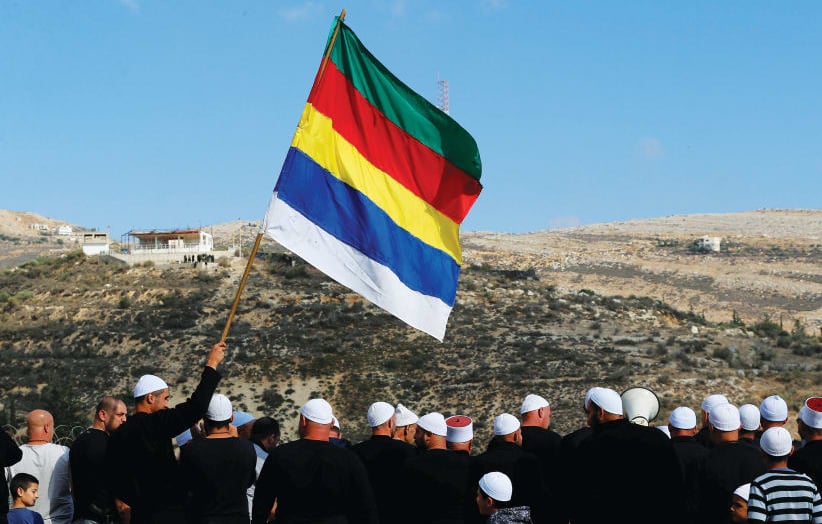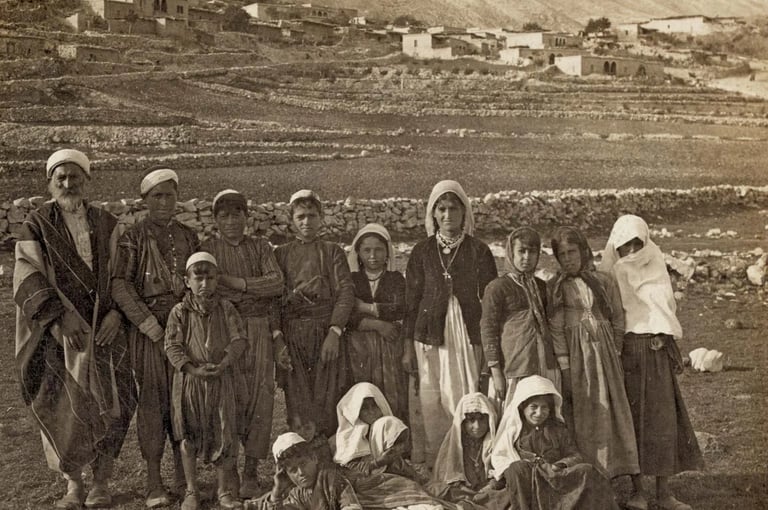The Druze People: A Journey of Faith, Identity, and Resilience
The Druze people are often seen as a community with an elusive and complex identity. Their origins trace back to the 11th century in the Middle East, emerging from the Ismaili branch of Shia Islam, but over the centuries, they developed a unique set of beliefs that distinguish them from the rest of the Muslim world.
IN BRIEF
Thinkbrief
7/23/20253 min read


The Druze people are often seen as a community with an elusive and complex identity. Their origins trace back to the 11th century in the Middle East, emerging from the Ismaili branch of Shia Islam, but over the centuries, they developed a unique set of beliefs that distinguish them from the rest of the Muslim world. While many outsiders mistakenly view them as a sect of Islam, the Druze consider themselves a distinct religious group with their own faith, principles, and sacred texts. The Druze faith is not something that can be easily understood by those who do not share their beliefs. It teaches the unity of God, the importance of spiritual enlightenment, and the reincarnation of the soul. The community’s internal cohesion and closeness to these sacred teachings have allowed them to survive as a minority group for over a thousand years in the face of repeated challenges. Yet, this distinctiveness has also led to countless struggles, as their beliefs often put them at odds with both the Muslim majority and the Christian populations in the regions they call home. The Druze people’s journey has been one of faith, survival, and resilience, constantly having to balance their religious identity with the socio-political realities of the Middle East.
Throughout history, the Druze have faced a series of harsh realities that have made their existence precarious. They have lived in a region where religious identity is not only a matter of personal belief but also a powerful political tool. Their refusal to conform to the religious orthodoxy of either the Sunni or Shia Muslim traditions made them vulnerable to persecution and marginalization. The Middle East, especially Lebanon, Syria, and Israel, has long been a region divided by sectarianism, with religious identities often being a source of conflict. The Druze, who do not fully belong to either of the dominant religious groups, have been caught in the middle of these tensions. Historically, this has led to violent encounters, where they were either oppressed or forced into political alliances with stronger factions in order to protect themselves. In Lebanon, for example, the Druze have faced not only political challenges but also violent attacks from various groups throughout the years. Despite these hardships, the Druze have built a tight-knit community that is deeply committed to preserving their traditions and beliefs. They have learned to adapt and remain resilient in the face of adversity, but these struggles have taken a toll on their communities and their sense of security. Even today, in the complex and volatile landscape of the Middle East, Druze people continue to live in the shadow of potential threats to their safety and way of life.
Despite the external pressures, the Druze community has managed to maintain its identity and cultural heritage, though not without sacrifice. They have often been forced to make difficult choices in order to survive in a region that has seen its fair share of conflict and instability. In Israel, for example, the Druze are often caught between their loyalty to their own community and the demands placed upon them by the state. The Israeli government has historically viewed the Druze as a bridge between the Jewish and Arab populations, and many Druze men are required to serve in the Israeli military. This has placed the Druze community in a unique and often difficult position, torn between loyalty to their people and allegiance to the state. At the same time, in Lebanon and Syria, the Druze have been forced to navigate the political and religious minefields created by civil wars and sectarian violence. As a minority group, they are often caught between larger powers vying for control, and their religious identity has made them targets of both political and religious extremists. Yet, despite these external pressures, the Druze people have managed to adapt, develop a sense of resilience, and continue to preserve their culture, language, and religious practices. Their survival as a distinct group in the Middle East is a testament to their unyielding commitment to their faith and to each other, even when faced with overwhelming challenges. Their ability to keep their beliefs intact and their community strong in such a volatile region speaks to the depth of their faith and the strength of their identity. But this endurance is not without pain. For many Druze, the constant balancing act between their religious practices and the political pressures of the surrounding world can be exhausting. Each day is a reminder of the difficult path they have chosen: to remain true to themselves, their history, and their faith, even when the world around them seems to demand that they compromise or disappear.

